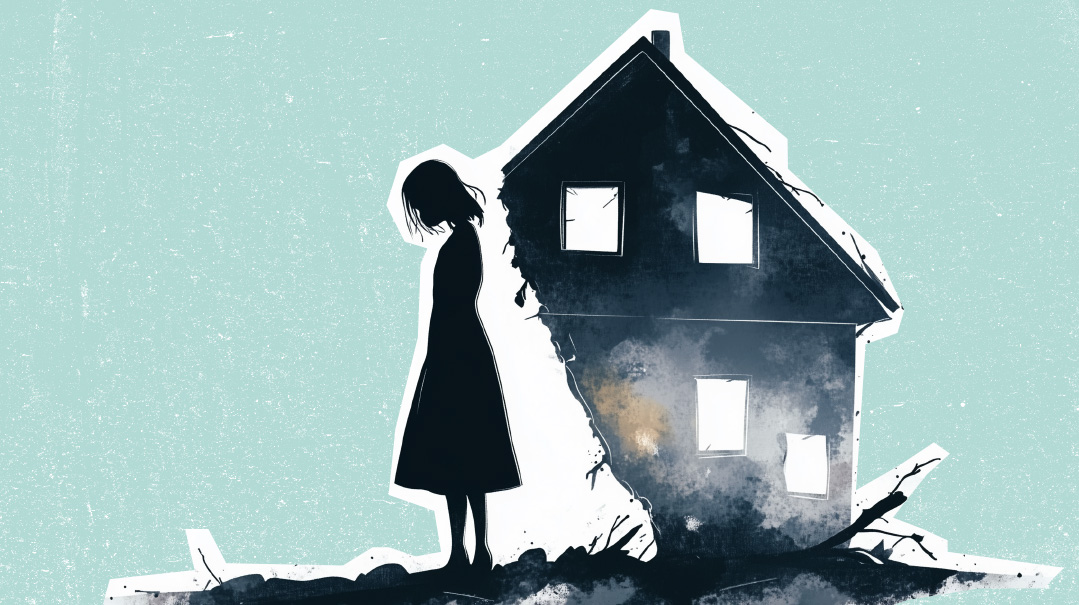“My Husband Gets Very Tense During the Yom Tov Season”

Whether you know what bothers him or not, you should talk to him about his feelings

Q
My husband gets very tense during the Yom Tov season and frequently loses his temper at both me and the kids. Naturally this ruins Yom Tov for all of us. I find myself walking on eggshells around him, but this doesn’t help. I don’t want to dread the entire month of Tishrei every year, but I don’t know what to do about it. Do you have any suggestions?
A
Unfortunately, in some people emotional stress leads to behavioral dysregulation, and in some of those same people, Yom Tov leads to emotional stress. Those who have an anxious tendency may be triggered by the expenses that the holidays can bring. Breadwinners often feel fear or pressure as their credit card statements suddenly reflect the innumerable purchases that often go into making Yom Tov.
In those with organizational and/or time management issues, the extra tasks and obligations that the holidays bring can foster a state of anxious overwhelm. Going to stay with relatives or having them move into one’s own home may be uncomfortable and pressurizing, especially for people who are easily disrupted by change in their routines. Lacking privacy or simple peace and quiet can be very stressful for those who are sensitive to excessive stimulation. Even having guests come and go just for meals can be draining, especially for people whose nervous systems are depleted by hours of noise, chaos, and activity. Anticipation of these challenges can produce increased stress even before the holiday begins.
In addition, spouses have to deal with each other’s increased stress levels. For instance, we see that you are (understandably) stressed about your husband’s combative behaviors. You may not be aware that he is likely stressed by your stress as well, including both your emotional “vibe” and your behavior as you struggle with all the extra holiday-induced demands on your time and energy. A woman’s tension affects her entire household and her comments about all that has to be done and how impossible or exhausting it is can increase everyone’s stress.
Any of these issues or others may be impacting your spouse who, according to your description of his behavior, struggles with impulse control. It sounds like his psyche is on high alert as the holidays approach and stays that way until the holidays pass, making him jumpy, agitated, and hostile. You know your husband better than anyone and therefore, you may be able to guess which of the many holiday challenges are most likely to be causing him stress.
But whether you know what bothers him or not, you should talk to him about his feelings. You can tell him that you notice that he’s more easily upset during the Yom Tov season and that you suspect that holiday stress is the culprit. You can talk to him about all the stresses described above and any others that you can think of. Showing compassion and understanding will help reduce defensiveness and improve the conversation. Talk about your own holiday-induced stress as well. Then let him know you’re concerned that the children see that Yom Tov brings misery and conflict. Let him know that you want to do whatever you can do on your part to create a calm atmosphere. Let him know how his anger affects you and the kids. Ask him if he can think of anything that could be changed to lessen the stress and frustration he obviously feels.
Then the two of you can brainstorm some options about how to handle stress without expressing anger. For instance, you can design three rewards, one of which will be granted to yourselves after Yom Tov — a small reward for at least trying to reduce conflict (include yourself in the problem even if you don’t feel you have a role, as it makes it easier for your husband to work on his anger-management issues), a medium reward for successfully reducing some of the usual conflict, and a big reward if the two of you feel that you have pretty well eradicated Yom Tov blowups.
Some people find negative consequences even more motivating. Therefore, you can also offer three levels of consequences for failure to remain pleasant.
Go ahead and read a few anger management books to scan for other strategies. Hopefully your husband will embrace the help you are offering for this problem, but if he resists, you can certainly suggest the help of a professional. You, your children, and your husband all deserve to enjoy the beauty and blessing of a harmonious Yom Tov season.
(Originally featured in Family First, Issue 915)
Oops! We could not locate your form.





